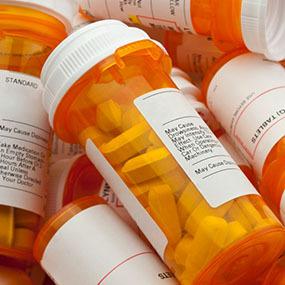As a nation we are fixated, and rightly so, on the ongoing, nightmarish opioid epidemic and the flow of prescription pills to consumers. Managing this flow more effectively is of utmost importance.
What about the flow of pills, of any kind, in the opposite direction – when they are no longer wanted? When it's time to put them aside what's the best way to dispose of them?
Most Americans likely don't give this much thought and they are usually tossed in the trash or flushed down the toilet. But both disposal methods are far from ideal for separate reasons. If they end up in the trash in the vial they came in, they can easily be fished out and fall into the wrong hands. Meanwhile, flushing toxic drugs dissolves them into wastewater and the less that goes into sewer systems all around the country, the better.
All of which means there are safer ways to rid yourself of unwanted or expired drugs without creating unintended consequences. So before you chuck 'em, consider these alternatives.
Return Pills to Pharmacies
Since disposal is such a common problem there's a huge demand for places that will collect unwanted pills. After new regulations were issued by the Drug Enforcement Administration in 2014, when the Controlled Substances Act was amended, pharmacies like CVS and Walgreens have helped fill the void. They have set up in-store drop boxes, similar to corner mailboxes, which allow for "deposits" but not "withdrawals." CVS is also donating these drop boxes, also known as kiosks, to local police departments (where you can also drop off unwanted medicine).
"We know firsthand patients are looking for solutions," said Rick Gates, Walgreens' senior vice president of pharmacy operations, speaking earlier this years with CNBC.com. "We asked patients, and what we heard was bringing medications back to pharmacies felt like the right thing to do because they're the places they go to pick up their prescriptions."
How many pills are being discarded? Data is sketchy and estimates vary, but from nursing homes alone the Environmental Protection Agency concluded in 2015 that roughly 740 tons of unused medication were being thrown away annually.
Before you toss out yours, black out your name on the label to protect your privacy. But leave the medical information visible.
 Make Medication Unusable Before Trashing
Make Medication Unusable Before Trashing
Another disposal method involves mixing the unused meds with substances or liquids that make them useless or distinctly unappealing. Pour a solution into the pill container, which will help them turn pasty. Another widely-recommended tactic is to mix in coffee grounds or cat litter. Then take the concoction and disguise it inside another container that's being thrown away. (Graphic courtesy: FDA)
Visit Take-Back Events
Every year since 2004 the DEA has sponsored a National Prescription Drug Take Back Day. Last April, the agency set up more than 5,800 collection sites where it collected 475 tons of unwanted medication. Check here to find the closest site near you.
Flush the Most Dangerous Drugs
While the previous disposal methods are preferable for most prescription drugs, the ones that should be flushed immediately are those that can cause the most harm to others, like opioids and other controlled substances. The FDA has a so-called "Flush List" that identifies the "medicines you should flush when they are no longer needed and take-back options are not readily available."




